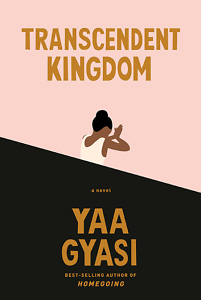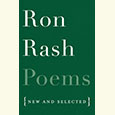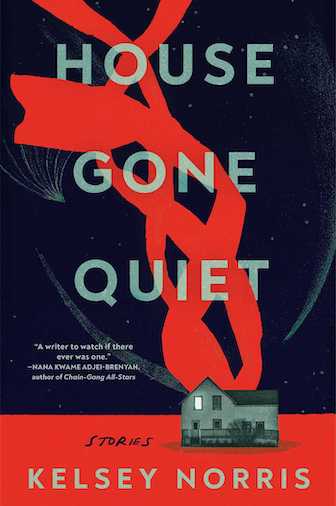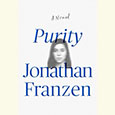Dim Lights, Dark Hallways
In Yaa Gyasi’s Transcendent Kingdom, a neuroscientist tries to makes sense of her family’s unraveling
Yaa Gyasi’s new novel Transcendent Kingdom confronts the venerable question of whether science or religion better reveals the truth about life’s enduring mysteries. Theological questions such as the origin of evil move into the realm of science as researchers probe the brain for clues regarding the electrochemistry of aberrant behavior.

Gyasi’s protagonist, Gifty, a first-generation American whose family immigrated from Ghana, learns as a child that religion can neither explain her family’s misfortunes nor provide comfort for her grief. When faith fails her, Gifty turns to neuroscience for answers, only to find that her quest will require years of dedication and discipline, not unlike the devotion of a novitiate in a monastic order.
Gifty is too clever to think the answers will come easily. Her high school biology teacher warns her that the process is long and uncertain. “The truth is we don’t know what we don’t know. We don’t even know the questions we need to ask in order to find out, but when we learn one tiny little thing, a dim light comes on in a dark hallway, and suddenly a new question appears,” the teacher says. “We spend decades, centuries, millennia, trying to answer that one question so that another dim light will come on. That’s science.”
Undeterred, Gifty studies at Harvard and then Stanford, worlds away from her upbringing in Huntsville, Alabama, where her mother is a home health aide. Her father has long since returned to Ghana, leaving her mother alone to raise Gifty and her older brother Nana, a high school basketball star who ultimately succumbs to opioid addiction. After his death, which Gyasi reveals in the opening chapters, her mother plummets into catatonic depression. “Gifty, I’m sick,” her mother tells her. Gifty accepts that diagnosis but reflects, “the how of her sickness, the why of it, I didn’t understand.”
 Transcendent Kingdom can be read as a preface to Gifty’s Ph.D. project at Stanford (where Gyasi attended college). Gifty’s experiments involve making mice dependent on sweet milk and then performing brain surgery to shine microscopic light on clusters of neurons to alter their behavior. “Could optogenetics be used to identify the neural mechanisms involved in psychiatric illnesses where there are issues with reward seeking, like in depression, where there is too much restraint in seeking pleasure, or drug addition, where there is not enough?” In other words, could science save her family?
Transcendent Kingdom can be read as a preface to Gifty’s Ph.D. project at Stanford (where Gyasi attended college). Gifty’s experiments involve making mice dependent on sweet milk and then performing brain surgery to shine microscopic light on clusters of neurons to alter their behavior. “Could optogenetics be used to identify the neural mechanisms involved in psychiatric illnesses where there are issues with reward seeking, like in depression, where there is too much restraint in seeking pleasure, or drug addition, where there is not enough?” In other words, could science save her family?
Gyasi enfolds the narrative with memories of Gifty’s childhood — particularly her parents’ separation and her brother’s athletic prowess — so that Transcendent Kingdom tells several stories simultaneously. Alongside Gifty’s bildungsroman is her family’s story of immigration, from the tightly woven social fabric of Ghana to the isolation of a Southern state in the U.S. It’s also a study in loss, how the reduction of one parent leaves the children adrift, how the death of a brother opens an unfathomable abyss.
On another level, Gyasi’s novel illustrates how meaning accrues, not in tidy lessons, but indirectly through experience and association. Long after Gifty loses her religious faith, she continues to use Christian language and mythology to make sense of life. She feels drawn to the story of Lazarus, the man who visits the afterlife and then returns. “I wanted an entire book of the Bible to be devoted to him and to how he must have felt to be the recipient of God’s strange and amazing grace,” Gifty says.
Though her biologist’s mind fixes on the physical realm, Gifty remains convinced that her work has a spiritual dimension, even if she must hide such feelings from her materialist colleagues. She observes, “[T]he more I do this work the more I believe in a kind of holiness in our connection to everything on Earth. Holy is the mouse. Holy is the grain the mouse eats. Holy is the seed. Holy are we.”
Similarly ecstatic passages appear throughout the novel, lightening otherwise somber subject matter. Though Gifty has endured tragedy, she views human existence as a cause for celebration and her vocation as a testament to our remarkable complexity. She studies the brains of mice “in order to apply it to … the only animal who believed he had transcended his Kingdom,” Gifty says. “That belief, that transcendence, was held within this organ itself. Infinite, unknowable, soulful, perhaps even magical.”
Transcendent Kingdom, Gyasi’s sophomore effort, appears to be a radical departure from her debut, Homegoing, which follows the disparate fates of two branches of an African family. What unites the novels is the author’s presiding belief in the irreducible wonder of the world, a realm that, in a line from Gerard Manley Hopkins that Gyasi uses as an epigraph, “is charged with the grandeur of God.”

Sean Kinch grew up in Austin and attended Stanford. He earned a Ph.D. from the University of Texas. He now teaches English at Montgomery Bell Academy in Nashville.


